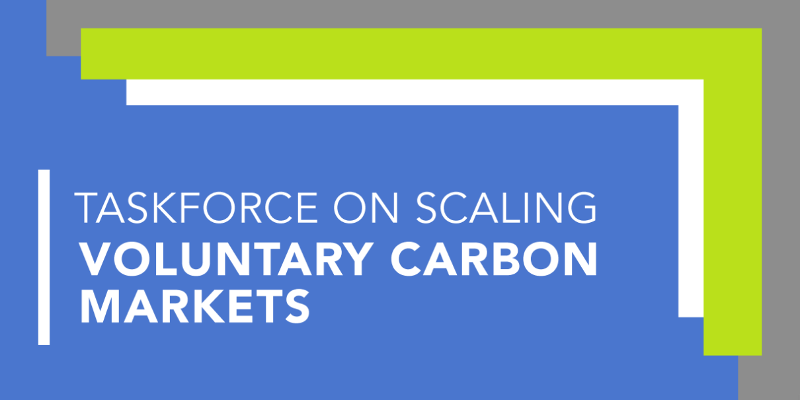REDD-Monitor’s “incredibly important perspective” on the Taskforce on Scaling Voluntary Carbon Markets: “The Taskforce is madness”!
Earlier this month, the Taskforce on Scaling Voluntary Carbon Markets published a 98-page “Consultation Document”. Phoebe Cooke, a journalist with DeSmog UK, got in touch with REDD-Monitor for a comment on the document for an article she was writing.
Cooke’s article notes that the Taskforce was set up by the Institute of International Finance (IIF) and its members include BP, Shell, and easyJet. It’s also loaded with carbon traders (South Pole, Natural Capital Partners, Verra, First Climate, EcoAct, ClimateCare, IHS Markit), investment bankers (Bank of America, BNP Paribas, Goldman Sachs, Macquarie, Standard Chartered, BlackRock), and multinational corporations (RWE, Unilever, Nestlé, Maersk, Boeing, Bunge, Etihad, Siemens, Tata Steel, Total).
The Taskforce was initiated by Mark Carney, UN Special Envoy for Climate Action and ex-Governor of the Bank of England. The point of the Taskforce is to “significantly scale up voluntary carbon markets and ensure they are transparent, verifiable and robust”. The “Consultation Document” mentions the word “offset” 238 times. “Fossil-fuel” appears once.
As well as REDD-Monitor, Cooke’s article includes comments from Greenpeace UK’s Doug Parr, and Gilles Dufrasne at Carbon Market Watch. Parr pointed out that offsetting is a dangerous distraction and added that, “Offsetting is not an alternative to reducing carbon emissions — which is the real work we need to do to try to prevent catastrophic climate change, by cutting fossil fuel production.”
Here’s the bit of the article quoting me:
Chris Lang, of environmental watchdog Redd+ Monitor, described the carbon market initiatives as a “dangerous distraction from the need to leave fossil fuels in the ground”. “The Taskforce is madness, from the perspective of addressing the climate crisis,” he told DeSmog.
“Aiming for ‘net zero’ by 2050 is a cop out. We need to reduce emissions from burning fossil fuels starting yesterday. Setting a ‘deadline’ 30 years in the future is meaningless in the face of the climate crisis.”
In response to the DeSmog article, Thomas Lingard of Unilever tweeted: “As taskforce member please can I urge all those quoted in this article to feed these incredibly important perspectives into the consultation.”
Obviously, REDD-Monitor is delighted that a Taskforce member considers the comment that “The Taskforce is madness” to be an “incredibly important perspective”.
Lingard also suggested “a connect next week on the taskforce”. Which is funny. The only worthwhile thing the Taskforce could do is close down with the final message that carbon markets should be scrapped because they make climate change worse.
Here, for the record, is the full comment that I sent to DeSmog’s Phoebe Cooke (obviously, I didn’t expect her to use the whole thing!):
The Taskforce on Scaling Voluntary Markets is madness, from the perspective of addressing the climate crisis. The climate crisis is already happening. What we urgently need to do is to leave fossil fuels in the ground. Carbon markets are a way of allowing emissions from burning fossil fuels to continue. Carbon markets were not created to reduce emissions. They were created to allow the fossil fuel industry to continue business as usual – something we’re seeing with the oil industry’s interest in offsetting its emissions through Nature Based Solutions. All of this is just a way of delaying meaningful action on addressing the climate crisis.
So from the perspective of the fossil fuel industry the Taskforce makes perfect sense. Like all carbon market initiatives it’s a dangerous distraction from the need to leave fossil fuels in the ground. Which is precisely why carbon trading is so attractive to polluting industry – and so dangerous for the climate.
Aiming for “net zero” by 2050 is a cop out. We need to reduce emissions from burning fossil fuels starting yesterday. Setting a “deadline” thirty years in the future is meaningless in the face of the climate crisis.
Carbon markets have never delivered emissions reductions, not least because that’s not what they are intended to do. Carbon markets may reduce emissions in one place, but by design they allow emissions to continue somewhere else. A large scale carbon market is precisely what we don’t need to address the climate crisis. There is no way of “fixing” carbon markets. We need to scrap carbon markets.




